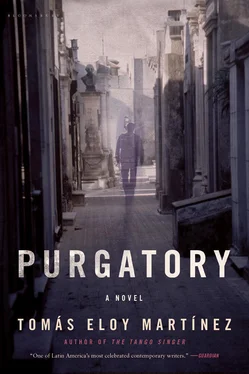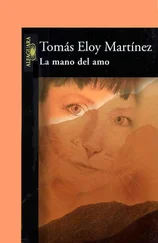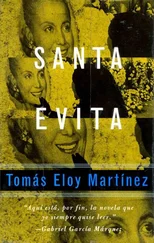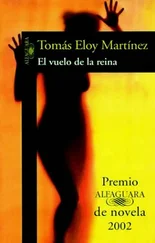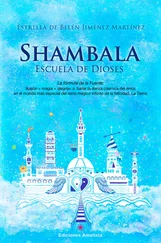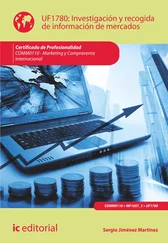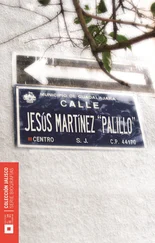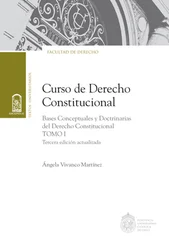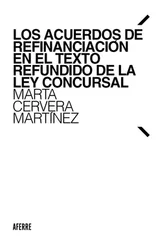‘Your editorial has been translated and sent via our embassies to foreign newspapers,’ said the admiral. ‘We have offered a lot of money to have them published. Most of them replied saying they won’t publish, not even as a paid advertisement.’
Dupuy felt embarrassed by the comment.
‘It’s not your fault, Doctor,’ the Eel intervened. ‘A number of extremists have escaped and have been making harmful statements about us. They’ve been travelling all over the world smearing our good name. They’re tireless. Even the BBC in London has broadcast a documentary full of lies. We plan to sue them, but who knows whether it’s wise to aggravate them, whether it will only give them more rope to hang us with.’
‘To do nothing would be much worse. But how can I be of help, señores?’ Dupuy asked. ‘You know more about counter-intelligence strategy than I do.’
‘We can’t destabilise subversives by the book,’ said the admiral. ‘What we need is a little imagination. That’s why we’ve called you in. What are your thoughts?’
‘Nothing, just at the moment. I’ll give the situation careful consideration and come up with a quick, effective solution. Something that will silence the liars once and for all.’
‘A lightning flash that will win over the sceptics. Another Star of Bethlehem,’ said the Eel.
‘A blinding flash, certainly, but something lasting,’ Dupuy amended, ‘something that will leave its mark on history. A century from now, any memories of us will be vague. To some in Argentina we will be heroes, not to others. But when they look on what we achieved, we will be remembered with respect, as the Borgias are in Florence, as Napoleon is in France. Of this sleazy campaign of lies against Argentina, on the other hand, no one will remember a thing. We will refute them now with something that will last forever. With a monument, but not one carved in marble. A monument that is imperishable. If you will excuse me, señores, I need to think.’
He did not sleep that night. The image of the Eel with the fringe and the Hitler moustache lay in wait like a starving cat. He reviewed the speeches Hitler had made when he carried all the world before him and wondered what his legacy to posterity would have been if history had not ruined it. He thought of the scale models of the Berlin Olympiad which the architect Speer had given Hitler for his birthday. He recalled the arresting opening scenes of Leni Riefenstahl’s two classic documentaries and sensed that this was the key. The finished motorways and the stadiums for the World Cup were equal to the ambition of Speer’s scale models. What was needed to complete the picture was a film like Riefenstahl’s, an enduring work of art which would tour the world, singing the glories of Argentina, which would carry off the prizes at Cannes, at Venice, at the Oscars. It needed a great opening and a great director. He thought of the unforgettable opening images of Olympia depicting the ruins of the greatness of Greek civilisation; he imagined thousands of balloons and doves rising in the late-afternoon air as a providential plane crossed the sky, a reference to Triumph of the Will where the Führer’s plane comes in to land at Nuremberg. The problem was the Eel did not have the gravitas of Hitler; he was scrawny, surly and the moment he opened his mouth he sounded like a barracks sergeant. This was something that could be dealt with later: using body doubles and long-distance shots. Right now he needed to think of a director capable of the same epic feat as Riefenstahl, someone who was already famous and respected.
He had met Orson Welles in the bullring in Toledo. He had only the vaguest idea of what Welles had done, but he knew that his first film, Citizen Kane , was considered by critics to be the finest in the history of cinema. That was enough for him. He didn’t need to see Citizen , all he needed was to find out a little more about the man himself. He had been a prodigy and at the age of thirty had married Rita Hayworth. He was not egotistical — his failures had cured him of his pride. If Welles was prepared to follow his orders, this documentary about Argentina would go down in history as the bible of cinema. The more he thought about the project, the more convinced he was that it could not fail. The characters would be heroes like those in Greek mythology. And the plot, ah, the plot — he would have to fashion it carefully. It would depict battles of the stature of War and Peace, Moby-Dick , the Iliad but played out on the football field. He would have liked to call the film Gods of the Stadium , but this was the Spanish title of Riefenstahl’s Olympiad .
The Welles he had met in Toledo was an educated man, more a jaded ox than a fighting bull. And, according to his informants, after Toledo, things had not gone well for him. He was constantly in need of money, constantly fighting with producers who mutilated his works of art.
That won’t happen with me, thought Dupuy, I speak the same language as he does. He had first seen him before the bullfight which was Antonio Bienvenida’s farewell to the bullring. He had been lying on a red velvet sofa, in a waiting room outside the matador’s dressing room, wreathed in the smoke from his huge cigar. Dupuy had had no idea who he was. He had never seen him act, did not know the man was famous. These were things he realised only later. Taking him to be a bullfighting critic, he greeted him respectfully: ‘Hail Mary, most pure.’ 18Welles looked him up and down without answering. ‘You’re not Catholic?’ the doctor said, surprised. A good Catholic would respond ‘Conceived without sin’. Welles smiled haughtily. ‘Please, don’t talk about my private life, señor,’ he said in impeccable Spanish. ‘Are you or aren’t you?’ Dupuy insisted. ‘I don’t know. Let me put it another way: once a Catholic, always a Catholic.’ ‘I certainly believe so,’ the doctor agreed. ‘That is the catechism.’
Bienvenida emerged from the dressing room wearing the bullfighter’s traditional ‘suit of lights’. He was a gentleman of melancholy disposition and he was nervous. The bulls that afternoon were the last he would face in his life. ‘I hope you get to see a good fight,’ he said. ‘By the grace of God,’ Dupuy corrected him. Then he turned back to Welles who had looked up. ‘Come now, hombre , say something. What are you waiting for? Wish the man luck.’ Welles did not say a word, but held out his hand to Bienvenida and stubbed out his cigar.
Dupuy smiled as he remembered the encounter. He had no doubts now. He would provide Welles with whatever he wanted, vast multitudes, fake cities like those in Hollywood; he would allow him to bring his own crew and would ensure that they lacked for nothing. He, Dupuy, would choose the music for the soundtrack. He would persuade Welles that they needed military marches, exuberant music and, especially, tangos. He would take him to meet Piazzolla, who had spent the past months writing a suite about the World Cup. He would tell Piazzola he had written the music for Last Tango in Paris , that he was a Richard Strauss, a Nino Rota. Orson would get down on his knees and thank him.
The following day he presented his idea to the comandantes . He spoke to each of them individually, because when they were together they constantly competed for control. The solution, he could convince them, was magnificent, but immortal? It would be difficult for a film — any film — to rival the Great Wall of China, nor was it as symbolic as the Obelisk of Buenos Aires. Wouldn’t it be possible to build another obelisk, they suggested to him, one twice as high with a football at the top? Dupuy wasted hours talking to them while they interrupted him, taking phone calls, signing decrees, consulting with the high command. The commander-in-chief of the navy said that he would agree to the idea if he could be filmed entering the stadium with Perón’s widow. The widow was in jail and the scene would have to be shot in secret. The commander-in-chief of the air force wanted the film to open with a fly-past of fighter planes. The Eel demanded that, instead of balloons and doves, Welles could make a speech asking for God’s blessing on Argentina. Dupuy said yes to all of them and suggested they let the director work in peace until it was finished. They were about to spend millions, he did not want to get embroiled in arguments before he had to. He phoned Welles’s agents and, shortly afterwards, flew to Los Angeles to firm up the details of what he was already calling the film of the century .
Читать дальше
